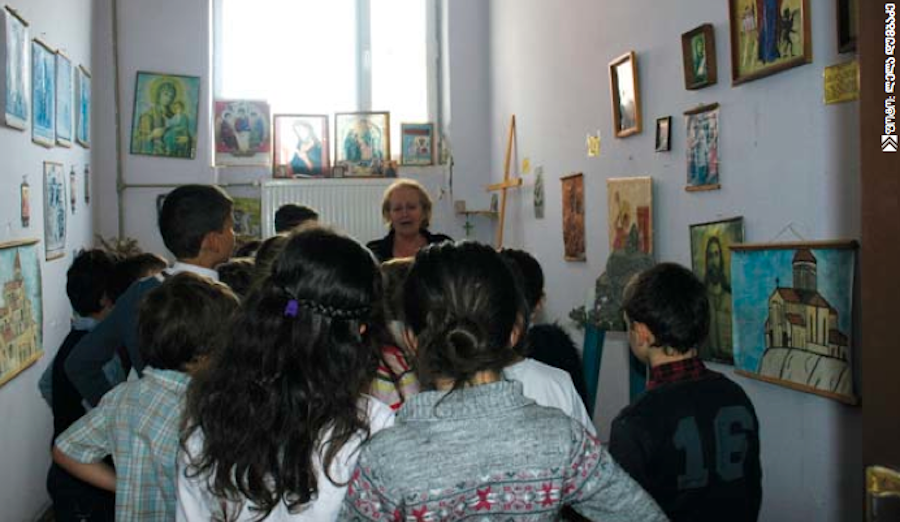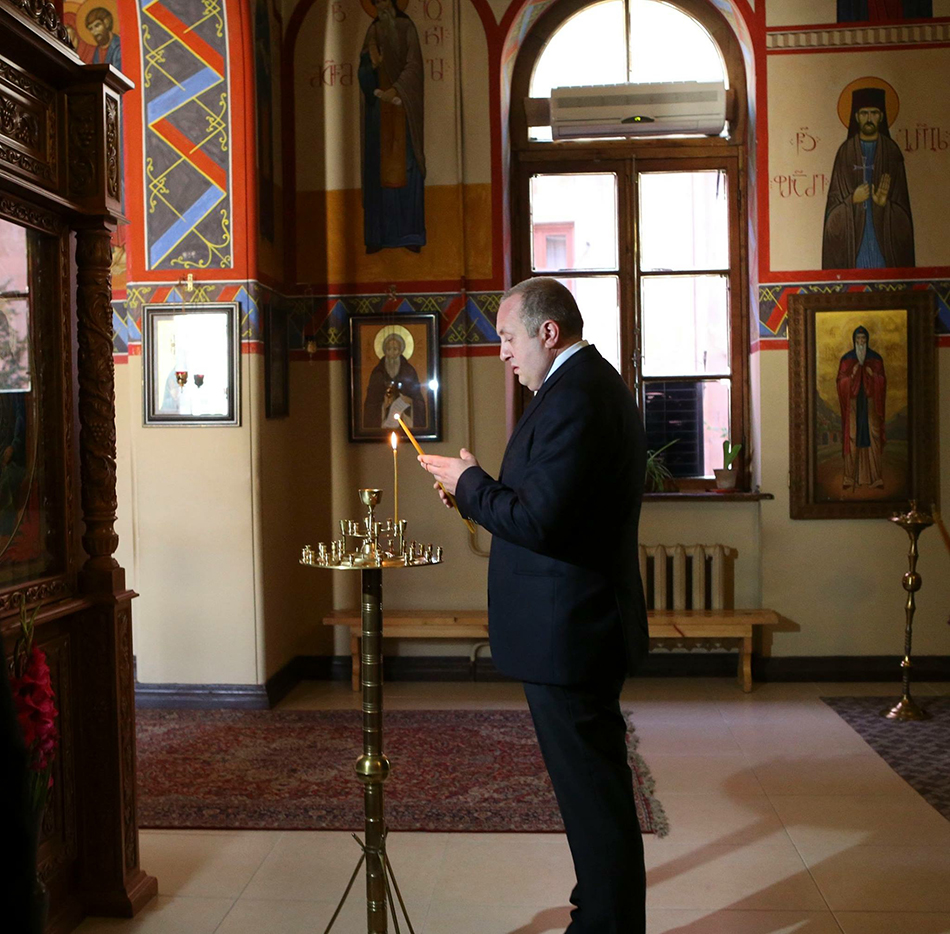Orthodoxy advancing into Georgian schools
Despite the fact that religion has not yet been included in the school timetable, public schools in Georgia are allotting plenty of time to ‘Orthodox education.’ It is noteworthy that edifying conversations are not always voluntary and are not always conducted with the students, who consider themselves Orthodox Christians.
Many schools practice prayers and conversations with priests; many of them, including in Tbilisi, have organized special room-chapels. According to parents, these chapels are always crowded.
Children, who identify themselves as religious minorities, say they are frequently oppressed. Studies revealed that Jehovah’s Witnesses and Muslims suffer from oppression most of all; the latter claim, teachers affront Islam in an open and undisguised manner even at schools, where Muslims constitute an overwhelming majority.
 A chapel at a state school in Batumi. Photo courtesy of Netgazeti
A chapel at a state school in Batumi. Photo courtesy of Netgazeti
The study of religion in secondary schools was abolished in 2005, by the former, more pro-Western government. Then there was a ban on the use of religious symbols in schools. Both reforms were recommended to the Georgian government by the OSCE.
It is fair to say that the abolition of symbols did not work – school continued to adorn their walls with crosses and icons despite the ban.
But the results were noticeable quite quickly: first of all, there was less pressure on the students representing religious minorities, and, secondly, it stirred strong protests by the radical religious organizations.
No wonder that in 2012, with the advent of the new government (and the launch of the church’s radicalization process) the issue of religious education in schools was put on agenda again. It caused a great deal of controversy, and, strangely enough, the Patriarchate stood as one of the opponents of the introduction of Orthodox education in secondary schools.
However, the proposal not to mix religious education with secondary schools remains to be implemented, as priests gladly accept school principals ‘invitations’ to talk to kids about ‘God’; school administrations, as well as many parents, are touched by such meetings.
Last year, right before the beginning of the academic year, the Ministry of Education stated that religion would not be studied separately in schools, but would rather be included in a subject called “Society and I’, that envisages the allocation of a number of hours to a ‘State and Religion’ theme.
Observers are rather critical about this subject. In particular, they point to the lack of legal control mechanisms, i.e. the Ministry of Education will be essentially unable to track the style in which the information would be provided. Conversations about the history of world religions and those widely spread in Georgia, are most often confined to reading the Bible and telling stories about the numerous great Georgian martyrs.
 Giorgi Margvelashvili, president of Georgia, praying at a school in Tbilisi after congratulating children with the begining of the new school year. Photo courtesy of president’s press-service
Giorgi Margvelashvili, president of Georgia, praying at a school in Tbilisi after congratulating children with the begining of the new school year. Photo courtesy of president’s press-service
“I always ask parents, whether they would like their children to know the prayers. If they do not wish it, their children would not be taught it,” said a state primary school teacher. “It is all voluntary and there is nothing wrong if non-Orthodox children listen to what is good and what is bad.”
Students, who I had asked to summarize the issues their religious conversations touched upon, said the matter most often concerned obedience and respect for parents, but occasionally, especially in upper grades, they touch upon ‘relationships’, including the ‘wrong’ ones (in terms of homosexuality). Also, children are actively recommended to fast, take communion and go to confession.
Relying on the population census, 80 percent of Georgian citizens consider themselves Orthodox Christians. For some reason, the statistics do not separately indicate the number of atheists in Georgia. However, there are 0.7 percent of people who do not profess themselves to any of the confessions. Atheists should apparently be sought in this group, and this index clearly shows how much of a minority they are.



















